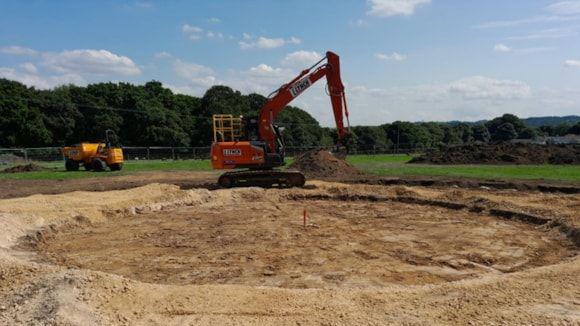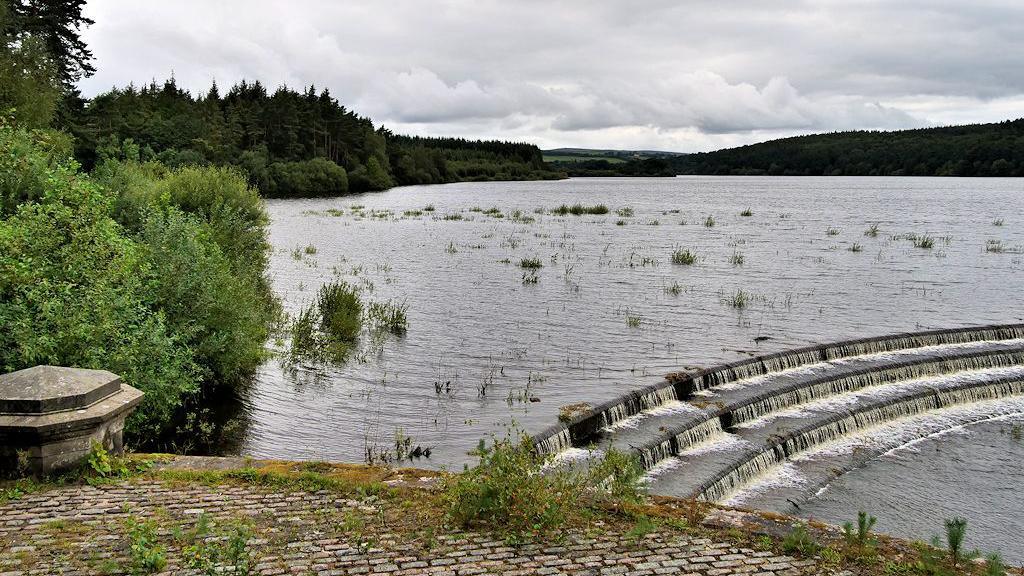Underground storage scheme to cut storm overflows

Yorkshire Water is facing a £47m fine for its sewage discharges in the region's rivers
- Published
A water company is spending £2.3m on underground storage to try and reduce discharges into the River Aire.
Yorkshire Water is building a 32ft (10m) deep tank in fields near Gilstead Lane and Sheriff Lane in Bingley.
It will be used to hold excess wastewater during periods of heavy or prolonged rainfall to reduce the need for discharges into Loadpit Beck, a tributary of the River Aire.
Earlier this week water regulator Ofwat revealed plans to fine Yorkshire Water £47m over historic sewage spills.
Storm overflows are used to allow excess waste water to escape into rivers or seas to avoid flooding, but are only designed to be used in exceptional circumstances.
However, recent reports suggest water companies across England are using these “relief points” increasingly often.
Yorkshire Water is one of three firms facing combined fines of up to £147m from Ofwat, alongside Thames Water and Northumbrian Water.
An investigation by industry regulator found that on average Yorkshire Water discharged untreated wastewater into the region's rivers for seven hours a day in 2023, with almost half of its storm overflows found to be in breach of regulations.
The company, which has announced plans to invest £180m to cut discharges from storm overflows by April 2025, said once completed the additional storage was expected to reduce discharges from the overflow by 44%.
Jamel Goodall, asset planning sponsor at Yorkshire Water, said: "We're pleased to have started work on the construction of the additional storage required in our sewer network in Bingley to reduce discharges from our Gilstead Lane 128 overflow.
“We know discharges from storm overflows are a key issue for our customers and we’re determined to reduce their operation across Yorkshire."
Work is expected to be completed in early 2025.
Listen to highlights from West Yorkshire on BBC Sounds, catch up with the latest episode of Look North or tell us a story you think we should be covering here, external.
Related topics
- Published6 August 2024
